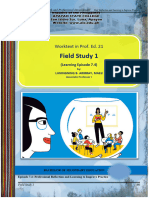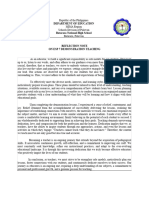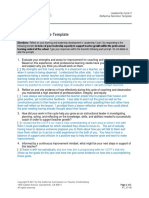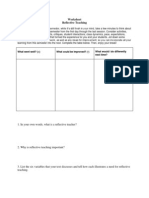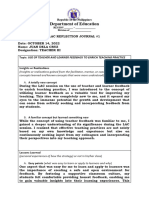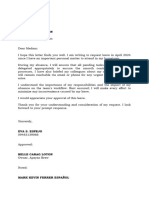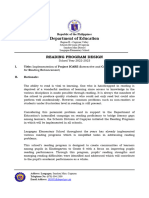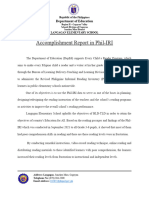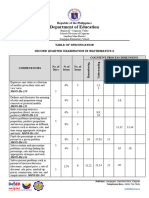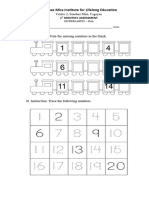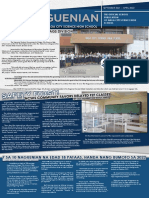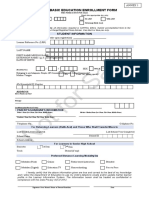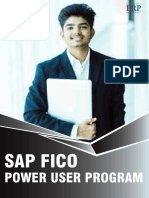0% found this document useful (0 votes)
153 views2 pagesReflection Notes 1
The reflection notes by Harold C. Vite, a Master Teacher, highlight key insights from his mentoring experiences with fellow teachers, emphasizing the importance of building supportive relationships, understanding individual needs, and aligning assessments with learning objectives. He discusses the value of diverse assessment strategies, continuous improvement through feedback, and data-driven decision-making to enhance teaching practices. Vite underscores the significance of nurturing a growth mindset and resilience among teachers, recognizing that mentoring is an ongoing process that enriches both the mentor and mentee.
Uploaded by
edenespejo1Copyright
© © All Rights Reserved
We take content rights seriously. If you suspect this is your content, claim it here.
Available Formats
Download as DOCX, PDF, TXT or read online on Scribd
0% found this document useful (0 votes)
153 views2 pagesReflection Notes 1
The reflection notes by Harold C. Vite, a Master Teacher, highlight key insights from his mentoring experiences with fellow teachers, emphasizing the importance of building supportive relationships, understanding individual needs, and aligning assessments with learning objectives. He discusses the value of diverse assessment strategies, continuous improvement through feedback, and data-driven decision-making to enhance teaching practices. Vite underscores the significance of nurturing a growth mindset and resilience among teachers, recognizing that mentoring is an ongoing process that enriches both the mentor and mentee.
Uploaded by
edenespejo1Copyright
© © All Rights Reserved
We take content rights seriously. If you suspect this is your content, claim it here.
Available Formats
Download as DOCX, PDF, TXT or read online on Scribd
/ 2



















